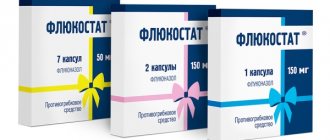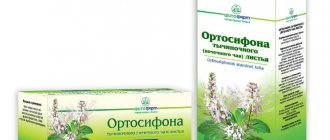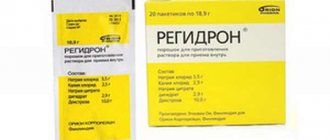The forecasts of the World Health Organization are not reassuring - more than 20% of the world's population suffer from allergies. And this is not surprising, because industry is developing at the same pace as the environment is deteriorating. New allergens appear probably every day.
During pregnancy, the risk of any allergy increases by almost half, and if a woman has a predisposition, then several times.
As a rule, if expectant mothers have allergic reactions, they take the drug Suprastin or the like. The choice of this particular drug is usually due to the absence of side effects in women before pregnancy.
Many people take Suprastin without a doctor's prescription or any consultation. Undoubtedly, at the first manifestations of an allergic reaction, a pregnant woman will begin taking her usual medication.
What kind of drug
Suprastin belongs to the first generation of foreign anti-allergic medications. Unlike its predecessors, Suprastin has less toxic effects during pregnancy. The drug is produced in tablet and injection form. The active component of the drug is chloropyramine, which has the ability to be quickly absorbed into the systemic bloodstream and affect all intraorganic structures, including the nervous system.
Doctors usually warn that mothers should stop taking medications during gestation. Suprastin is able to penetrate the placental structures, and its effect on the fetus and pregnancy itself has not been fully studied, therefore unauthorized and thoughtless use of the drug for pregnant women can result in adverse consequences.
Answers from experts
Marfa Vasilna I:
It is better not to take any such drugs during pregnancy. And before taking, be sure to read the instructions for use of the drug! And there are contraindications - don’t take the pills, save them, then decorate some cake. You can’t trust doctors, they’re completely stupid these days, and they don’t prescribe anything other than the medicine from TV commercials. And any fool can be treated like this. You should only believe what is written in the instructions, because if the patient becomes disabled or (God forbid) dies, the doctor will quickly excuse himself, and you will no longer sue the pharmaceutical company, because the instructions warned you, and if you If you haven't read it, that's your problem. Has anyone noticed that the doctor never gives the patient a card or medical history? This is done so that if something happens it can be corrected. So that they don’t get dragged through the courts. What you need now is calcium gluconate and calcium chloride. There will be no harm, and it will help relieve allergies. Calcium gluconate intramuscularly, and it is better to drink calcium chloride. It tastes worse than vodka, but health is more important. As for tavegil, this drug negatively affects the retina of the eyes, and retinal pigmentary degeneration can develop. In this case, the mother is like a carrier, and if a boy is born, he will gradually go blind. The process is irreversible. Be healthy! Live richly!
Theresa:
take any allergy medicine but a child's dose
Olenka *Laponka* ))):
I took Tavegil, although already in the third trimester, the doctor told me that these are the safest allergy pills
Olesya Sigova:
I'm allergic! I took Suprastin almost the entire pregnancy... it was the only thing that saved me! (I only took half a tablet - they themselves are tiny... half was enough for me)
BARBARISOVNA:
Suprastin is not recommended to be taken at all. Especially children. It affects the psyche. Causes inhibition. Tavegil is easier, but also undesirable. Try bee products instead of vitamins. If you are interested, write to your email or agent, I will tell you which ones. I eat myself, I feed my children and granddaughter, the whole family enst - only benefits!
CYCAL!:
it should be taken in your case as an emergency remedy!!!! in case of any serious reaction! In general, it is not advisable to take preperat during pregnancy. if there is a reaction to vitamins. then you should stop taking vitamins because the child may be born with allergies!!!! and this is worse. if itching, you just need to wash yourself or wipe yourself with an infusion of string and celandine
Lelya:
Tavegil is a drug as old as the world! Now there are new generation drugs, they are less dangerous. Ask at the pharmacy. I think they prescribed Claritin.
Irina Vitolina:
Try consulting a pharmacy, people there are much more knowledgeable than some doctors, but if you have severe allergies, then it would be preferable, of course, to take something
Eyes of the night:
An allergist advised me to take Claritin in emergency cases as the safest drug. But still, first of all, it’s worth giving up the allergen.
Christina Ts:
Can. Since antibodies are associated with allergies. . this is worse than government
Scorpio, white and fluffy:
Yes you can, you can. Nothing bad will happen.
Maria Krasnova:
Consult your doctor, because some people are allergic to Suprastin (my friend, for example)
Nata:
It’s also written in the instructions for use that it’s better not to!!!! Don't poison your baby... be patient, lubricate with baby cream, bepanthen…. try it one by one!! !and babies - babies can only be given it from 1 month!! !
Natasha-Romashka:
Can. Suprastin is even given to children to prevent allergic reactions. For example, before vaccinations. Health to you!
Anna:
Can activated carbon
Ok:
no no! it is forbidden! Only fenistil in drops is given to his children, or in extreme cases, like all sorts of bran, they also relieve allergic reactions! I also drank and at about the same period I was only allowed to use fenistil and give it to babies!
How it works
Suprastin is one of the antihistamines, or more precisely, histamine receptor blockers. The drug effectively relieves allergic reactions, which is determined by the mechanism of action of the drug.
- When an allergic reaction occurs, histamine begins to be actively released in the body, and Suprastin binds its receptors, preventing the manifestation of the histamine effect, i.e., allergies. In fact, histamine also circulates through the bloodstream, but cannot show its effect. It is soon absorbed by phagocytes and neutralized.
- The medication also has antiemetic, moderate anticholinergic and antispasmodic effects.
- Suprastin can also have a calming and hypnotic effect, which experts consider to be a side reaction of the medication.
- After penetration into the bloodstream, chloropyramine penetrates the blood-brain barrier and affects brain structures, which leads to the development of lethargy and drowsiness. The patient’s reaction to any irritants decreases, therefore it is recommended to abandon any activity related to driving, increased attention, work on machines, etc.
- The anticholinergic effect of Suprastin is due to the blocking of receptors for mediators of parasympathetic nervous system structures, in particular acetylcholine. As a result, the sympathetic nervous system effect on the body increases, which is accompanied by symptoms such as nausea, dry mouth, delayed bowel movements and increased heart rate, increased blood or intraocular pressure.
- Antispasmodic activity is also due to the blocking of acetylcholine receptors, against the background of which a decrease in muscle tone occurs, while the patient experiences a feeling of relaxation.
In the blood, the maximum concentration of the active ingredient is reached approximately an hour after administration, and the effect lasts up to 4-6 hours. Therefore, for a lasting antihistamine effect, you should take the drug at least 4 times a day. If the allergic reaction becomes life-threatening, then it is necessary to use solutions for intramuscular or intravenous injection.
Analogues of "Suprastin"
You can replace the drug with several drugs. A complete analogue of Suprastin in terms of the active substance is Chloropyramine. However, it is prohibited to take it during pregnancy. If Suprastin is not suitable for a woman, then only a specialist can recommend another drug to her.
Medicines with similar effects include Fenistil, Tavegil, Zodak. However, these drugs are completely prohibited for use during pregnancy. Medicines such as Claritin and Diphenhydramine are prescribed to future women in case of emergency and in consultation with a doctor.
When is it appointed?
Although the spectrum of therapeutic action of Suprastin is quite diverse, it is prescribed mainly during the period of allergies, to relieve such reactions. Conditions such as urticaria, contact dermatitis or allergic conjunctivitis may be indications for the use of Suprastin. Also, an antihistamine is indicated for hay fever, Quincke's edema, chronic or acute eczema. Suprastin is also recommended for allergic reactions to various insect bites or for anaphylaxis.
Only a specialist will select the appropriate product individually
Pathological conditions included in the list of indications for the use of Suprastin, if developed in pregnant patients, can seriously threaten pregnancy and the health of the baby. Therefore, the use of an antihistamine may be a necessary measure to relieve a life-threatening condition. But can Suprastin be taken during pregnancy? Doctors' opinions on this matter vary.
About the importance of prevention
It is no coincidence that antihistamines are prohibited in most cases for pregnant women. They have an effect on the immune system, blocking some of the body's natural reactions. So, when taking such drugs for a long time, the patient may not notice that she has developed another disease.
For this reason (and not only) it is better not to treat allergies, but to avoid them if possible. If the pregnancy is planned, then tests can be done in advance to check what exactly causes the corresponding reactions in the body.
Some women deliberately plan conception so that the main period, or at least 1 trimester, does not fall in the spring. During the flowering period, it is difficult for most allergy sufferers, even those who do not usually react to plants.
Is it possible for pregnant women
Due to hormonal changes and increased stress on the mother's body, a woman sometimes has extreme difficulty resisting various allergens. Mommy begins to perceive various foods much more sensitively. Unusual nausea and even vomiting reactions appear in response to one food, and allergic manifestations appear in response to other foods. Such conditions seriously reduce the quality of life of the mother herself and can cause serious harm to the baby.
Allergic reactions are especially dangerous in the first gestational trimester, when the baby is just forming, its systems and organs are still in their infancy. At this stage, the embryo is not yet protected from allergens, since it does not yet have a placental barrier. In the second and third trimester, allergic manifestations no longer pose such a threat to the baby, but they cause serious discomfort to the mother herself, who constantly experiences irritation, fatigue, and depression, which is not beneficial for the baby.
- Experts believe that with allergic rhinitis and congestion of the nasal passages, bronchospasms, which seriously impede the breathing of the pregnant woman, a dangerous hypoxic state develops, disrupting the umbilical cord blood flow.
- If allergens do not pose a danger to the baby, then they can manifest themselves in the form of allergic intolerance of the child after birth.
- Allergies are usually hereditary. If the mother suffers from a certain hypersensitivity, then in about half of the cases the baby also suffers from a similar allergy.
- About a third of all pregnant women suffer from allergic reactions during gestation at least once, so the issue of taking antihistamines for this category of patients is quite relevant.
- Suprastin during pregnancy in the 1st trimester easily penetrates into embryonic structures, where it can seriously disrupt the processes of formation and development of the most important organic structures, therefore taking the drug in the early stages is contraindicated.
- The antihistamine is able to cross the blood-brain barrier, therefore it is contraindicated to be prescribed in the last weeks of the gestational period, from approximately 36-37 weeks.
The safest use of Suprastin is considered to be during pregnancy in the 2nd trimester, when systems and organic structures are more or less formed. If the benefits of Suprastin for a pregnant woman will many times exceed the risks of negative consequences for the fetus, and there is no other alternative for antihistamine treatment, the use of Suprastin at any gestational age is considered justified.
Suprastin during pregnancy in the 1st, 2nd and 3rd trimester: instructions for use, contraindications
With the onset of pregnancy, women's risk of developing allergies increases. This is due to the fact that active hormonal changes occur in the body and an inevitable decrease in immunity. During pregnancy, many medications are prohibited. Is it possible to take Suprastin during pregnancy? Can this drug harm the unborn baby?
Suprastin: active substance and properties of the drug
This antihistamine medicine is produced by the largest Hungarian pharmaceutical brand, occupying one of the leading positions in the medicine market in Central and Eastern Europe. The drug is manufactured in tablet form and in the form of a solution for intramuscular and intravenous injections. The table provides detailed information on each of the release forms of Suprastin.
| Release form | Active substance | Additional components | Appearance | Packing |
| Pills | Chloropyramine |
| Pressed round powder, odorless, white or grayish in color with beveled edges. On one side of the tablet there is a risk for breaking, on the other the inscription “SUPRASTIN” is stamped. | The drug, 10 pieces each, is placed in foil blisters or 20 pieces each in darkened glass bottles with a rubber cap. Individual packages of tablets are packaged in cardboard boxes of 10 or 20 pieces. |
| Injection | Distilled water | Transparent colorless liquid with a slight odor. | The medicine is packaged in 1 ml glass ampoules. Each vessel has a break point on the surface and is equipped with a red code ring. The ampoules are placed in plastic contour blisters. The solution is packaged in rectangular cardboard boxes of white and purple color, containing 1 or 2 glass vessels. |
This medicine has a number of therapeutic properties:
- decongestant;
- antipruritic;
- antiemetic;
- antispasmodic;
- m-anticholinergic.
The therapeutic effect of the tablet form of Suprastin is achieved 15 to 30 minutes after use. The medicine begins to have its maximum effect within the first 60 minutes from the moment of administration. The therapeutic result from one dose of the drug lasts up to 6 hours.
Instructions for Suprastin and use during pregnancy
According to the instructions for use, Suprastin should not be taken by patients during pregnancy.
This is explained by the fact that the drug, when it enters the bloodstream through the placental barrier, can penetrate to the fetus, causing defects in its development. In addition, it can lead to poor circulation in the expectant mother.
The ban on use by pregnant women is also due to the fact that the manufacturer has not conducted studies on the use of this antihistamine during pregnancy.
Despite this, in exceptional cases, expectant mothers are prescribed Suprastin to relieve allergy symptoms. This appointment is made subject to the following conditions:
- there is no therapeutic effect from the use of other drugs approved during pregnancy or their use is impossible for certain reasons;
- acute attacks of allergies have been diagnosed;
- the benefits of using the medicine outweigh the potential harm.
Taking Suprastin in this situation is possible only in a hospital setting, so that if any side effects develop, the patient can quickly receive medical assistance. Most often, pregnant women are prescribed the drug in tablet form, since the injection solution is used for acute allergy symptoms in the form of angioedema and anaphylactic shock.
Preliminary measurement of blood pressure is a mandatory condition for taking Suprastin by a expectant mother. This indicator should not be lower than 90 mmHg. Art.
In what cases is suprastin prescribed to pregnant women?
Indications for the use of this medicine by pregnant women:
- signs of urticaria;
- serum sickness – a specific reaction of the body’s immune system to components of vaccines, serums, protein preparations;
- seasonal and chronic allergic rhinitis;
- conjunctivitis;
- contact dermatitis - inflammation of the skin upon contact with an allergenic factor;
- skin itching during pregnancy;
- acute (wetting) and chronic (dry) eczema is an allergic dermatological non-contagious disease;
- atopic dermatitis is a chronic, non-contagious inflammatory process that affects the skin, characterized by constantly alternating periods of exacerbations and remissions;
- food and drug allergies - a specific reaction of the immune system to certain foods and medications;
- insect allergic reaction - intolerance by the body of substances released by insects during bites;
- Quincke's edema - as an adjuvant.
Every woman carrying a child must understand that improper and uncontrolled use of Suprastin can cause dangerous consequences for the health of the unborn baby. You can take this medicine only after consulting with your doctor.
Risk to the fetus and mother
No studies have been conducted on this drug regarding the negative effects of its constituent components on the woman’s body during gestation and the intrauterine development of the fetus. For this reason, Suprastin is automatically included in the list of medicines prohibited for use during pregnancy.
Despite this, many years of obstetric medical practice shows that only the 1st and 3rd trimesters of pregnancy are contraindications for taking this medication. In the 2nd trimester it is prescribed without any particular concerns for the health of the patient and the unborn child.
In the first trimester
During this period, the formation of vital organs of the fetus occurs, therefore potent drugs, including the entire list of antihistamines, are strictly prohibited for use.
antiallergic drugs, including suprastin, have the ability to be quickly absorbed into the blood and cross the placental barrier.
at the stage of intrauterine formation of the internal organs and systems of the unborn child, their impact can disrupt its normal development, provoking the appearance of congenital anomalies.
To eliminate the need to use antihistamines, it is necessary to eliminate possible allergenic factors. If the expectant mother has a tendency to develop an allergy to house dust, while waiting for the baby, you need to regularly carry out wet cleaning and get rid of the main dust collectors - upholstered furniture and carpets.
If you have a history of an acute reaction of the immune system to secretions secreted by pets or street animals, before planning a baby, it is recommended to temporarily place furry pets with relatives or friends, and also completely eliminate contact with stray cats and dogs. if there was hypersensitivity to any product, the expectant mother should stop using it.
in the second trimester
Despite the fact that by the beginning of this stage of pregnancy the formation of the fetus has already been completed and it is reliably protected by maternal immunity, its body is still susceptible to the negative effects of medications. for this reason, when prescribing suprastin to patients during gestation to eliminate allergic manifestations, the safest dosages are established.
In order to minimize the risk of harm to the fetus, the duration of taking the antihistamine is very short, and its discontinuation occurs immediately after the condition of the expectant mother has normalized.
in this case, to eliminate the symptoms of an allergic reaction, the tablet form of suprastin is predominantly used.
injection solution is indicated in exceptional situations in severe cases of the disease.
According to the research center of the United States, in this country, cases of circulatory disorders in the placenta and complications of fetal life were officially recorded when this drug was inappropriately prescribed to patients in the second trimester of pregnancy. In order to avoid repeating the negative experience of their American colleagues, before prescribing this medicine to a woman during gestation, doctors carefully weigh the need for taking it with the possible risk of complications.
in the third trimester
During this period, the use of this drug is undesirable, since the active substance included in its composition can adversely affect the nerve center of the expectant mother, causing labor disruption. in addition, taking suprastin can cause problems in the child’s respiratory system after birth.
treatment regimen: dosage, frequency and duration of administration
The drug is prescribed by a doctor on an individual basis.
When determining the dose and duration of taking the medicine, the specialist takes into account the patient’s health characteristics, the severity of allergic manifestations, her body weight, and also assesses the likelihood of developing negative reactions when using the medicine. The table provides information on how to properly take Suprastin during gestation.
| Release form | Daily dose of medication | Maximum daily dosage | Method of use |
| Pills | 3 pieces (75 mg) | 4 pieces (100 mg) | Take orally with food, without chewing and with plenty of water. |
| Injection | 2 mg x weight in kg | Inject into a muscle or vein strictly under the supervision of a medical professional. |
The duration of treatment depends on each specific case. As a rule, the drug is discontinued immediately after the patient’s condition has stabilized.
Suprastin analogs approved for pregnant women
There are many medications that can replace Suprastin during pregnancy. They are available in the form of drops, gels, emulsions, tablets, capsules, creams, syrups and sprays. They are allowed to be used only after consultation with a doctor. The table provides general information about antihistamines prescribed during gestation.
| Name of the drug | Active substance | Release form |
| Fenistil | Dimetinden | Capsules, oral drops, gel, cream and emulsion for topical use |
| Claritin | Loratadine | Tablets, syrup |
| Enterosgel | Polymethylsiloxane polyhydrate | Paste for oral administration |
| Zintset | Cetirizine | Tablets, syrup |
| Tavegil | Clemastine | Tablets, injection solution |
Source: https://www.oldlekar.ru/beremennost/lekarstva/suprastin-pri-beremennosti.html
How to use
So, pregnant women are allowed to take Suprastin from 14-15 to 36 weeks. The tablets are taken with or after food. It is necessary to take the drug with plenty of liquid to avoid the pill getting stuck in the lumen of the esophagus. A single dosage is 1 tablet, 3-4 doses per day, the maximum daily dose is 100 mg of the drug. The effect of the tablet begins after 15-20 minutes.
Calmness and a positive attitude are the main helpers
If injections of the drug are indicated, the administration procedure should be carried out under strict aseptic conditions to avoid purulent complications. The dosage is about 1-2 ml per day. Usually injections are given intramuscularly, but in particularly difficult cases intravenous administration is indicated (the drug should be administered very slowly). When an attack of anaphylaxis or angioedema stops, they switch to intramuscular use of the drug, and after stabilization
The specific choice of form of antihistamine is determined by the degree of complexity and intensity of the allergic reaction. If the area of allergic skin rashes is steadily increasing, and the patient is bothered by severe itching, then the first dose of the drug should be intramuscular. When further progression of the allergic reaction stops, you can switch to tablet use.
The antihistamine therapy regimen for each patient is prescribed individually in accordance with the severity of the allergic reaction, gestational age and other factors. If all recommendations are strictly followed, the optimal and safest concentration of chloropyramine for a pregnant woman will be maintained in the bloodstream, which will minimize the risks of side effects and negative complications for the fetus. The average duration of antihistamine therapy is short-term 5-7-day courses. Long-term use of Suprastin is not recommended due to possible addiction.
Adverse reactions
If a pregnant woman is still prescribed a similar antihistamine, she should understand that the development of adverse reactions cannot be ruled out. This is one of the most important rules when taking any medications during gestation. Suprastin can provoke:
- Gastrointestinal disorders with diarrhea or constipation, dry mouth or nausea and vomiting reactions;
- Cardiovascular disorders such as low blood pressure or arrhythmia, tachycardia;
- Nervous system disorders such as anxiety and sleep disturbances, lethargy, fatigue, etc.;
- Retention of urine or difficulty urinating;
- Increased IOP or impaired visual clarity.
Such conditions cannot be considered as the norm for pregnant patients and can adversely affect the course of gestation and fetal development.
Contraindications
Before prescribing any drug to patients, the specialist will definitely study the presence of contraindications, especially when prescribing medications to pregnant women. Suprastin is contraindicated in case of individual intolerance or hypersensitivity to the components. Also, antihistamines are not prescribed for exacerbation of asthma, during lactation, or for glucose-galactose malabsorption.
The drug is prescribed with increased caution for urinary outflow disorders, hepatic-renal disorders, cardiovascular pathologies or glaucoma. Moreover, Suprastin helps to weaken the immune defense, which is already depressed against the background of conception.
special instructions
It is strictly unacceptable to combine Suprastin with alcohol, because alcohol slows down the metabolism of the drug and provokes the development of an overdose. In addition, chloropyramine itself potentiates the cerebral effects of ethanol, increasing the degree of intoxication.
As for interactions with other medications, Suprastin enhances the medicinal effect of taking drugs such as psychotropics, antidepressants, atropine, painkillers and sedatives. To avoid interaction, these medications should be taken after Suprastin at 2-hour intervals.
If a pregnant woman is bothered by an allergy during pregnancy, this does not affect the baby inside in any way. The danger arises only when there is a change in the mother’s well-being, such as swelling of the nasal mucosa or changes in pressure indicators, which negatively affect the uteroplacental blood flow. Only then is taking antihistamines justified.











